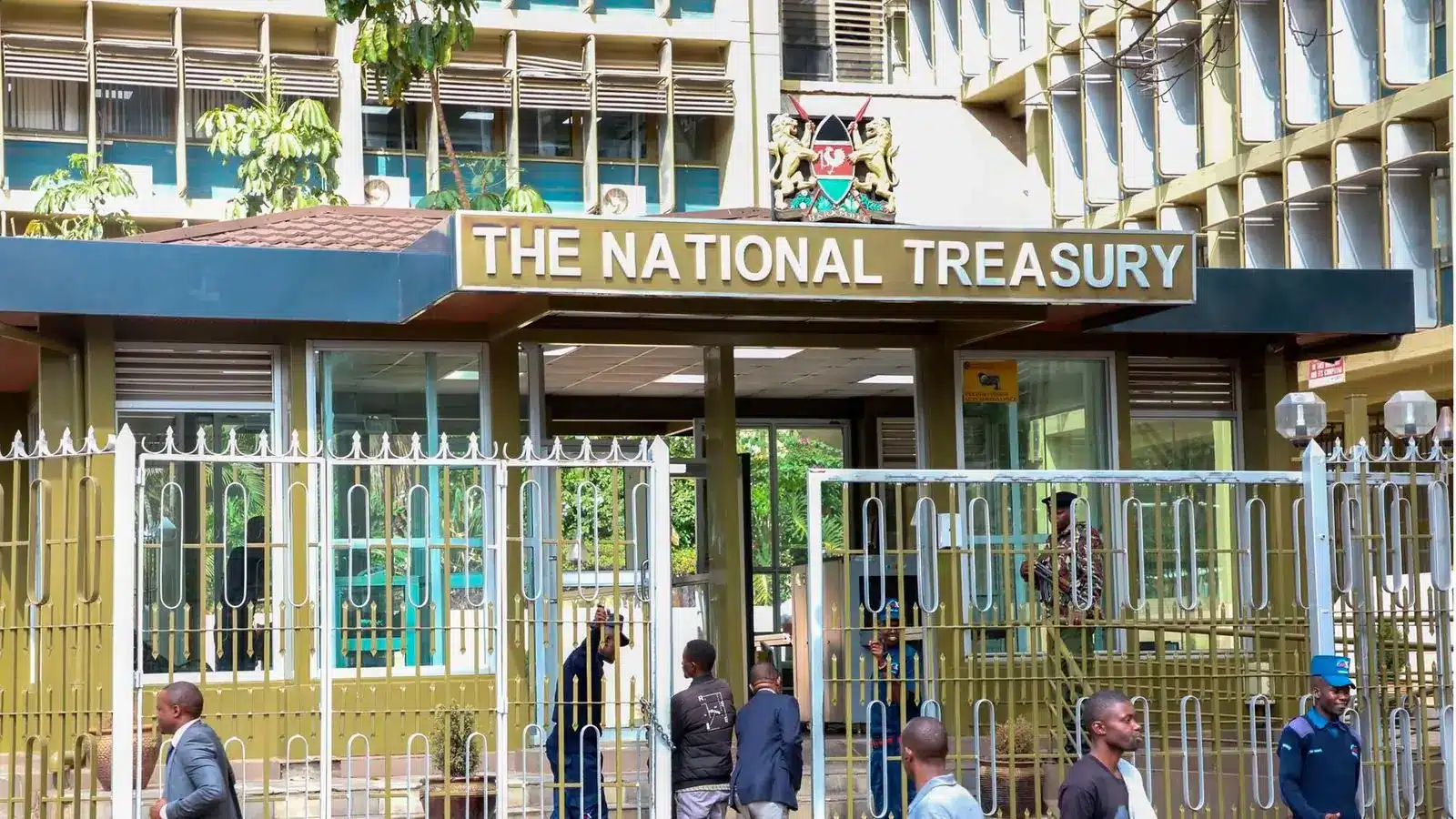The interest rates on Treasury bills in Kenya have continued to decline for six consecutive weeks, reflecting a significant improvement in the country’s macroeconomic environment. This sustained decline comes as the Central Bank of Kenya (CBK) navigates through a challenging economic landscape, marked by previous inflationary pressures and currency volatility.
Overview of Treasury Bill Rates Decline
According to data from the Central Bank of Kenya, the interest rates on the 91-day, 182-day, and 364-day Treasury bills have fallen steadily since the beginning of August 2024. Specifically, the interest rate on the 91-day Treasury bill decreased to 15.7677% from 15.7844% in the previous week. Similarly, the 182-day Treasury bill saw a reduction to 16.6255% from 16.6327%, while the 364-day Treasury bill rate dropped to 16.8228% from 16.8421%.
Factors Contributing to the Decline
The decline in Treasury bill rates is largely attributed to improved economic conditions, including lower inflation rates and a stronger shilling. Analysts at AIB-AXYS Africa, a leading stock brokerage firm, noted that the CBK has actively sought to lower interest rates by managing the macroeconomic environment more effectively.
“This decline is attributable to the CBK’s resolve to nudge interest rates lower amid an easing risk landscape,” stated the analysts in a research note.
Inflation, which had been a significant concern, has cooled down considerably, falling below the government’s midpoint target of 5%. Despite a slight increase in August 2024 to 4.4% from 4.3% in July, the inflation rate remains within manageable levels, providing relief to both consumers and investors.
Impact of Central Bank Policies
The Central Bank of Kenya has played a pivotal role in stabilizing the economy by adjusting the Central Bank Rate (CBR) in response to inflationary pressures. Earlier in the year, the CBR was raised to 13% to curb rising inflation and stabilize the shilling. However, as inflationary pressures eased and the economic outlook improved, the CBK lowered the CBR to 12.75% in August 2024. This move was aimed at stimulating economic growth by making borrowing more affordable for businesses and consumers.
The CBK’s actions have also been influenced by global economic trends, particularly the expected interest rate cuts in advanced economies such as the United States. These anticipated cuts have provided the CBK with further impetus to ease domestic interest rates, aligning Kenya’s monetary policy with global trends.
Effects on the Financial Market
The decline in Treasury bill rates has had a ripple effect across the financial market. While lower interest rates reduce the returns on different asset classes, they are expected to provide relief to borrowers who have been burdened by high debt service costs over the past year.
In the banking sector, the average commercial bank lending rate fell in July 2024 to 16.84% from 16.85% in August, marking the first drop in 21 months since October 2022. This reduction in lending rates is expected to support higher disbursements by commercial banks, thereby boosting credit growth in the private sector.
Private sector credit growth had slumped to just 4% in June 2024, signaling the impact of high interest rates in dampening the demand for loans. However, the recent easing of interest rates is likely to reverse this trend, encouraging businesses to borrow more and invest in expansion projects.
Eurobond Yields and Infrastructure Bonds
Externally, the yields on Kenya’s Eurobond papers have also declined, oscillating in the single-digit territory. This decline is another positive indicator of the stability of interest rates after a tumultuous 12 months that saw significant fluctuations in the bond market.
The August 2024 infrastructure bond (IFB) auction further highlighted the gradual decline in interest rates. For instance, the return on the re-opened 6.5-year infrastructure bond fell to 18.2989%, compared to 18.4607% on the 8.5-year bond issued in February 2024. This reduction in yields reflects growing investor confidence in Kenya’s economic recovery and the CBK’s effective management of the debt market.
Broader Economic Implications
The sustained decline in Treasury bill rates is a clear indication that Kenya’s economy is on the path to recovery. The improved macroeconomic environment, characterized by lower inflation, a stronger shilling, and declining interest rates, has created a more favorable climate for investment and economic growth.
The CBK’s efforts to stabilize the economy have been instrumental in this recovery. By carefully managing interest rates and responding to global economic trends, the CBK has helped to restore confidence in the financial markets and encourage investment in government securities.
Looking ahead, the continued decline in interest rates is expected to have a positive impact on the economy, particularly in terms of increasing credit availability and reducing the cost of borrowing. As businesses and consumers benefit from lower interest rates, the overall economic growth is likely to accelerate, further strengthening Kenya’s position as a leading economy in the region.
Conclusion
The decline in Treasury bill rates for six consecutive weeks is a testament to the Central Bank of Kenya’s successful management of the economy. By addressing inflationary pressures and stabilizing the shilling, the CBK has created a more favorable environment for investment and economic growth. As interest rates continue to fall, the benefits will be felt across the economy, from increased credit availability to lower borrowing costs, paving the way for a sustained economic recovery in Kenya.
The CBK’s proactive approach in managing interest rates, coupled with favorable global economic conditions, bodes well for the future of Kenya’s economy. As the country continues to navigate the challenges of the post-pandemic world, the decline in Treasury bill rates serves as a positive sign that the worst may be over, and brighter days are ahead.
photo source: Google
By: Montel Kamau
Serrari Financial Analyst
9th September, 2024
Article, Financial and News Disclaimer
The Value of a Financial Advisor
While this article offers valuable insights, it is essential to recognize that personal finance can be highly complex and unique to each individual. A financial advisor provides professional expertise and personalized guidance to help you make well-informed decisions tailored to your specific circumstances and goals.
Beyond offering knowledge, a financial advisor serves as a trusted partner to help you stay disciplined, avoid common pitfalls, and remain focused on your long-term objectives. Their perspective and experience can complement your own efforts, enhancing your financial well-being and ensuring a more confident approach to managing your finances.
Disclaimer: This article is for informational purposes only and does not constitute financial advice. Readers are encouraged to consult a licensed financial advisor to obtain guidance specific to their financial situation.
Article and News Disclaimer
The information provided on www.serrarigroup.com is for general informational purposes only. While we strive to keep the information up to date and accurate, we make no representations or warranties of any kind, express or implied, about the completeness, accuracy, reliability, suitability, or availability with respect to the website or the information, products, services, or related graphics contained on the website for any purpose. Any reliance you place on such information is therefore strictly at your own risk.
www.serrarigroup.com is not responsible for any errors or omissions, or for the results obtained from the use of this information. All information on the website is provided on an as-is basis, with no guarantee of completeness, accuracy, timeliness, or of the results obtained from the use of this information, and without warranty of any kind, express or implied, including but not limited to warranties of performance, merchantability, and fitness for a particular purpose.
In no event will www.serrarigroup.com be liable to you or anyone else for any decision made or action taken in reliance on the information provided on the website or for any consequential, special, or similar damages, even if advised of the possibility of such damages.
The articles, news, and information presented on www.serrarigroup.com reflect the opinions of the respective authors and contributors and do not necessarily represent the views of the website or its management. Any views or opinions expressed are solely those of the individual authors and do not represent the website's views or opinions as a whole.
The content on www.serrarigroup.com may include links to external websites, which are provided for convenience and informational purposes only. We have no control over the nature, content, and availability of those sites. The inclusion of any links does not necessarily imply a recommendation or endorsement of the views expressed within them.
Every effort is made to keep the website up and running smoothly. However, www.serrarigroup.com takes no responsibility for, and will not be liable for, the website being temporarily unavailable due to technical issues beyond our control.
Please note that laws, regulations, and information can change rapidly, and we advise you to conduct further research and seek professional advice when necessary.
By using www.serrarigroup.com, you agree to this disclaimer and its terms. If you do not agree with this disclaimer, please do not use the website.
www.serrarigroup.com, reserves the right to update, modify, or remove any part of this disclaimer without prior notice. It is your responsibility to review this disclaimer periodically for changes.
Serrari Group 2025





